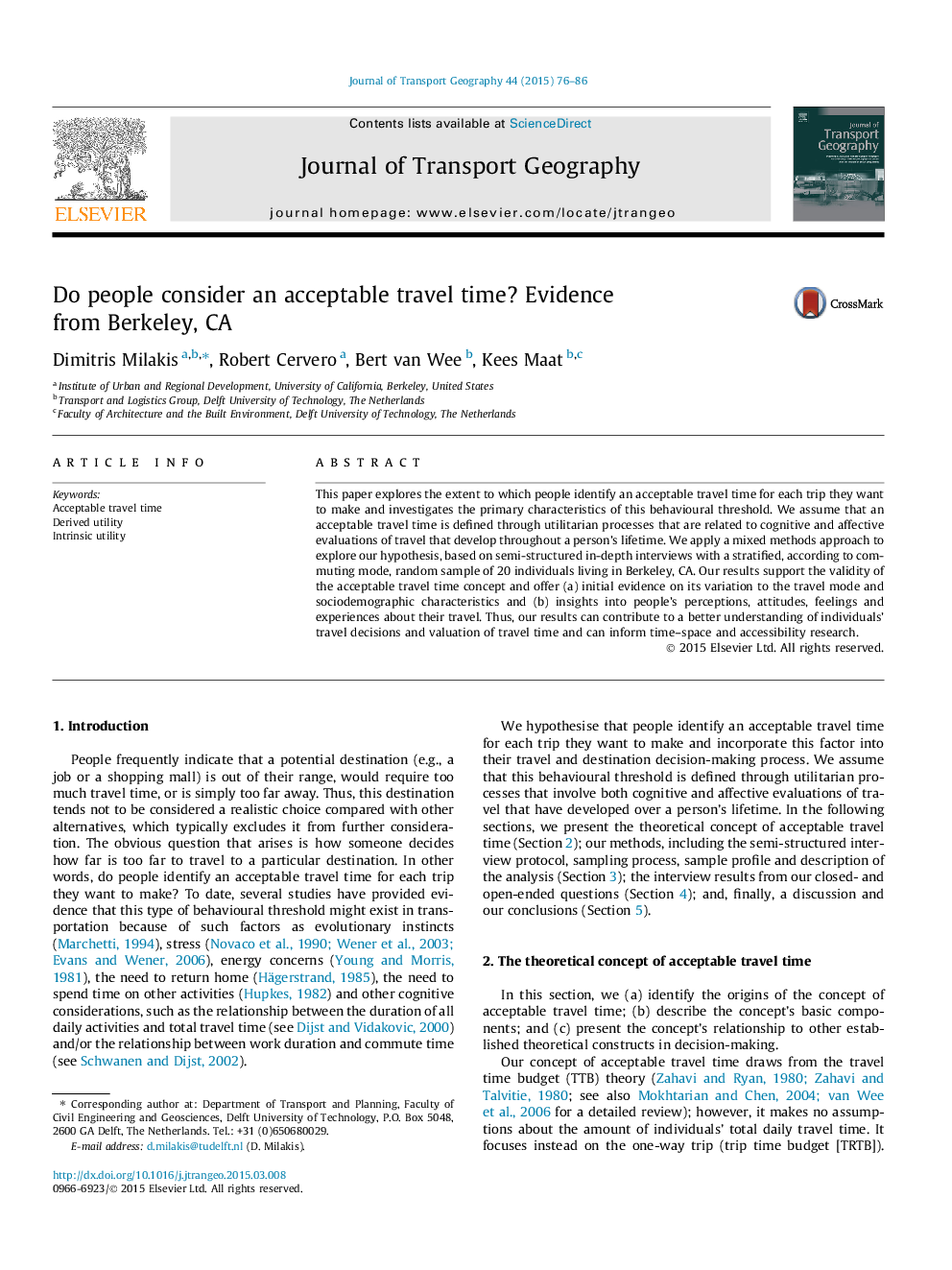| Article ID | Journal | Published Year | Pages | File Type |
|---|---|---|---|---|
| 1059040 | Journal of Transport Geography | 2015 | 11 Pages |
•We explore whether people identify an acceptable travel time for each trip they want to make.•We assume that an acceptable travel time is defined through utilitarian processes.•We apply mixed methods based on 20 semi-structured in-depth interviews in Berkeley, CA.•Our results support the validity of the concept of acceptable travel times.•Acceptable travel time can vary with travel mode and sociodemographics.
This paper explores the extent to which people identify an acceptable travel time for each trip they want to make and investigates the primary characteristics of this behavioural threshold. We assume that an acceptable travel time is defined through utilitarian processes that are related to cognitive and affective evaluations of travel that develop throughout a person’s lifetime. We apply a mixed methods approach to explore our hypothesis, based on semi-structured in-depth interviews with a stratified, according to commuting mode, random sample of 20 individuals living in Berkeley, CA. Our results support the validity of the acceptable travel time concept and offer (a) initial evidence on its variation to the travel mode and sociodemographic characteristics and (b) insights into people’s perceptions, attitudes, feelings and experiences about their travel. Thus, our results can contribute to a better understanding of individuals’ travel decisions and valuation of travel time and can inform time–space and accessibility research.
